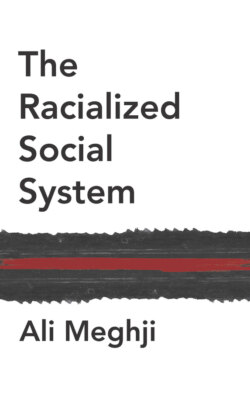Читать книгу The Racialized Social System - Ali Meghji - Страница 7
The roots and routes of critical race theory
ОглавлениеThe reactionary criticisms of CRT – especially in the US – tend to paint a picture of CRT as being endemic across the arts, humanities and social sciences since the 1980s. The reality of the situation is that CRT actually has a narrower intellectual lineage.
Of course, it is undeniable that in the second half of the twentieth century, critical work on race and racism was growing in the US academy. Ironically, due to the widely held post-civil rights ideology, which assumed that racism was now a thing of the past, this critical scholarship was largely about bringing legitimacy to frames that centred racism as a primary axis of social organization. Thus, to name just a handful of paradigms, in the 1970s we had Joyce Ladner’s (1973) call to move beyond a ‘white sociology’ which ignored continuing racial inequality, and Robert Staples’ (1976) subsequent call for a Black sociology, which took Black knowledges and methods seriously as a rebuttal of the dominant post-civil rights ideology. In the 1980s, we had Angela Davis (1983) and Manning Marable’s (1983) re-engagement with racial capitalism theory, Michael Omi and Howard Winant’s (1986) racial formation theory, showing how the post-civil rights era constituted a racial project which was still based on racial hierarchization, and Patricia Hill Collins’ (1986) Black feminist sociology stressing the importance of those epistemological frames which get pushed to the peripheries of the academy for their centring of race and gender.
As scholars such as Philomena Essed and David Theo Goldberg (2002) have pointed out, when a group of US legal scholars in the 1980s started referring to their work as ‘critical race theory’, there was already a large amount of critical scholarship on race and racism that was circulating in the US academy. Similarly to this wide body of scholarship, the self-declared critical race theorists wanted to displace ideologies which downplayed the continuing significance of racism. It is with these critical legal scholars that I propose we begin our overview of CRT as a strain of social scientific thought, though we must keep in mind that they were not working in an epistemological prism, but rather were part of a wider movement of recentring critical perspectives on race and racism.
